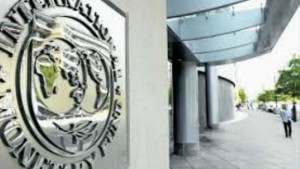 On August 31, 2015, the Executive Board of the International Monetary Fund (IMF) concluded the Article IV consultation1 and the First Post-Program 2 with St. Kitts and Nevis.
On August 31, 2015, the Executive Board of the International Monetary Fund (IMF) concluded the Article IV consultation1 and the First Post-Program 2 with St. Kitts and Nevis.
The economic situation has continued to improve since the completion of the Fund-supported home-grown economic program in July 2014. Continued rapid inflows under the Citizenship-By Investment (CBI) program have led to a surge in construction activity, and supported a large increase in government and Sugar Industry Diversification Fund (SIDF) investments and spending, including on the People Employment Program (PEP). These factors, together with the ongoing recovery in tourist arrivals fueled rapid GDP growth of about 6 percent in 2013 and 2014. The banking system has remained stable, notwithstanding the restructuring of government debt held by the banks. However, the growth of private sector credit, while turning positive, has remained very weak, despite the high bank liquidity. Inflation has remained very low, at 0.6 percent at end-2014, reflecting weak international commodity prices. The current account deficit remained at about 7.5 percent of GDP, below historical levels, on the back of high CBI budgetary inflows, while external reserves remain high at about 9 months of imports.
The fiscal balance has remained high. Tax revenues grew more rapidly than GDP, offsetting higher expenditures, including the thirteenth month wage bonus and reforms to the CBI program. CBI budgetary revenues surpassed their 2013 performance, reaching 14 percent of GDP. The overall fiscal surplus in 2014 was 9.5 percent, compared to 12 percent in 2013, primarily on account of substantial decline in SIDF support to the budget. Debt has declined faster than planned, reflecting higher GDP growth and advance debt repayments, to reach 79 percent of GDP at end-2014 compared to 100.8 percent at end-2013.
The near-term outlook remains strong, but there are risks on the horizon. The imposition of visa requirements by Canada, combined with new competition on the CBI front, from neighboring countries and globally, raising uncertainty regarding future CBI inflows. Further, while the high fiscal surplus allows the government to accommodate the expected decline in tax revenues from the substantial widening in VAT and custom exemptions granted in December 2014 and April 2015, these measures may undermine fiscal and debt sustainability over the medium term. Without corrective measures, the new exemptions could lead to a reversal of the downward trajectory of the debt-to-GDP ratio, particularly in case of a natural disaster or an exogenous shock. Finally, a substantial part of the rapid reduction in the debt-to-GDP ratio is the result of the debt-land swap. A reversal of this operation would erode much of the gains in debt sustainability and increase fiscal spending on debt service.
Over the medium term, growth is expected to converge to the regional average of about 2.5 percent, consistent with the staff’s cautious assumptions regarding CBI inflows, as large CBI construction projects reach completion, and tourism resumes as the main driver of growth.
Executive Board Assessment3
Executive Directors welcomed the strong economic performance of St. Kitts and Nevis since the completion of the three-year Stand-By Arrangement, as evidenced by rapid growth and the strong fiscal position. Although the outlook remains favorable, it is vulnerable to a possible reduction of the large inflows of recent years under the Citizenship-By-Investment (CBI) Program.
Directors therefore stressed the need for continued prudent policies and structural reforms to safeguard fiscal and debt sustainability and deliver broad-based growth.
Directors welcomed the improvement in tax revenue collection and the large fiscal surplus achieved in 2014. Most Directors, however, were concerned that the recent introduction of VAT and custom duties exemptions could erode past gains and increase vulnerability to volatile CBI inflows, unless accompanied by offsetting measures. In this regard, Directors encouraged the authorities to strengthen fiscal buffers with continued reform of tax administration and public financial management, civil service reform, measures to limit tax incentives, and improved monitoring of public enterprises.
Directors commended the authorities’ efforts to pre-pay debt. Despite the considerable progress, public debt remains high, and Directors recommended continued early repayment of debt with CBI savings. Noting the substantial gains from debt restructuring and the debt-land swap, Directors encouraged the authorities to preserve this progress.
Directors welcomed the ongoing reform of the CBI program to strengthen due diligence and the efforts to coordinate policies on these programs in the region. They encouraged the authorities to establish an effective and transparent framework for saving and managing the budgetary resources from the program. They also stressed the importance of improving the management and transparency of the Sugar Investment Diversification Foundation. These steps will reduce pro-cyclical stimulus, contain risks to the economy from a possible reduction of these inflows, and gradually eliminate quasi-fiscal expenditures.
Directors noted that the financial system is stable, and called for continuous efforts to strengthen financial supervision, reduce nonperforming loans, and foster sound credit growth. They welcomed the passage of the banking legislation, which will facilitate the implementation of the regional banking resolution strategy. They encouraged the authorities to continue monitoring developments and coordinate with the Eastern Caribbean Currency Union (ECCB) as needed. Directors considered that any extension of offshore banking should be accompanied by adequate supervision and compliance with global Anti-Money Laundering/Combating the Financing of Terrorism (AML/CFT) regulation and tax reporting requirements. Moving forward with a plan for the land held by the Special Land Sales Company would bolster banks’ balance sheets.
Directors agreed that faster progress on structural reform is key to enhancing competitiveness and medium-term growth prospects. Priorities include strengthening support to the tourism sector, improving the business climate, and diversifying into alternative energy sources.
Directors underscored the importance of upgrading the quality of macroeconomic data.
